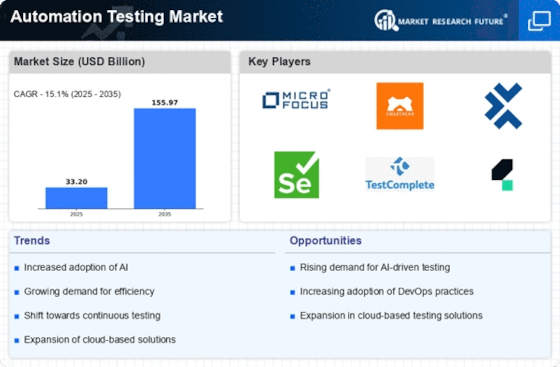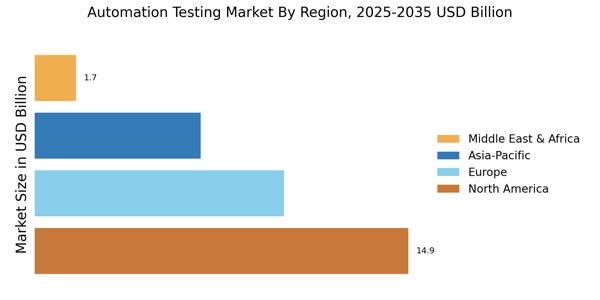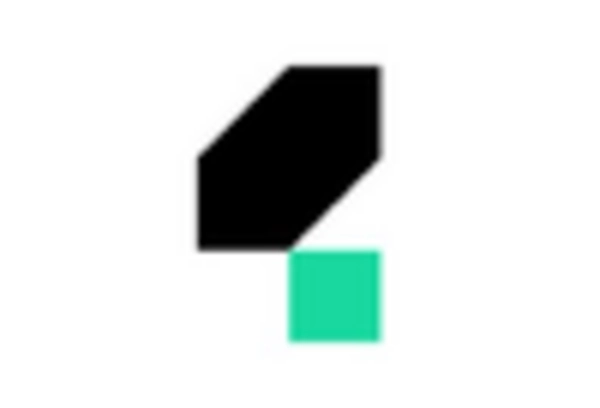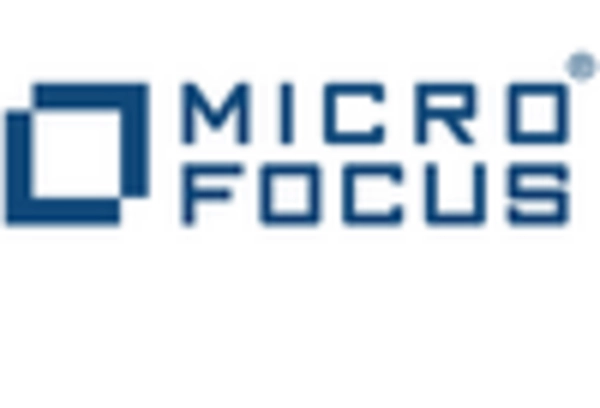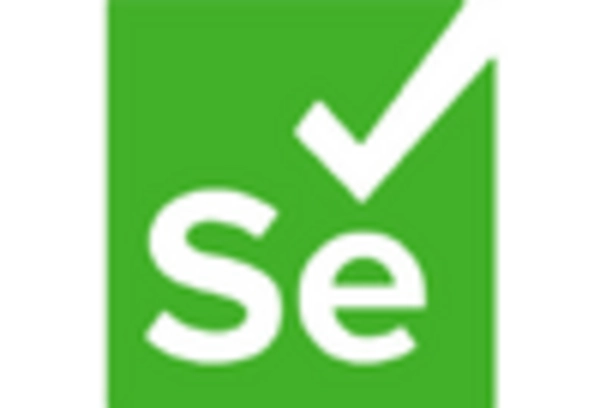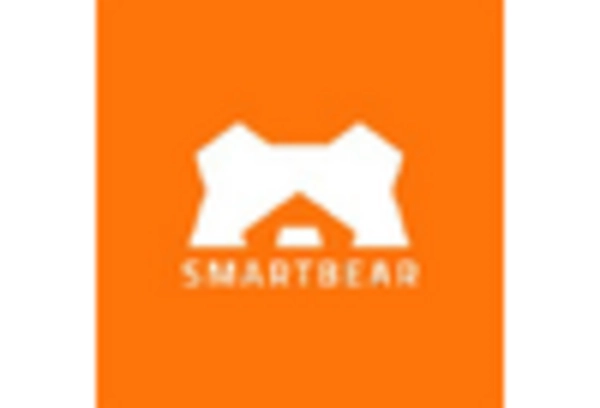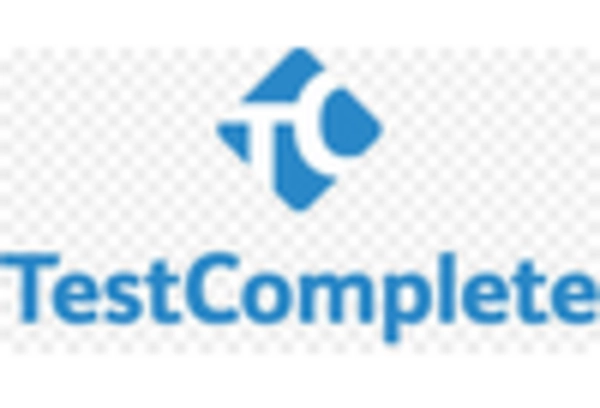Growing Focus on Regulatory Compliance
As industries face increasing scrutiny regarding regulatory compliance, the Automation Testing Market is becoming increasingly relevant. Organizations are required to adhere to various standards and regulations, necessitating rigorous testing processes to ensure compliance. Automation testing provides a systematic approach to validate that software meets these regulatory requirements, thereby reducing the risk of non-compliance. This trend is particularly evident in sectors such as finance, healthcare, and telecommunications, where compliance is critical. The demand for automation testing solutions that can efficiently handle compliance-related testing is expected to rise, driving growth in the Automation Testing Market. Companies are likely to invest in automation tools that facilitate compliance verification, further solidifying the industry's importance.
Rising Demand for Software Quality Assurance
The increasing complexity of software applications has led to a heightened demand for robust quality assurance processes. Organizations are recognizing that ensuring software quality is paramount to maintaining competitive advantage. The Automation Testing Market is experiencing growth as companies seek to enhance their testing capabilities, reduce time-to-market, and minimize errors. According to recent data, the market for software testing services is projected to reach substantial figures, indicating a strong trend towards automation. This shift is driven by the need for faster release cycles and the ability to handle large volumes of testing efficiently. As businesses strive for excellence in software delivery, the Automation Testing Market is poised to benefit significantly from this demand.
Expansion of Digital Transformation Initiatives
The ongoing digital transformation initiatives across various sectors are significantly influencing the Automation Testing Market. Organizations are increasingly digitizing their operations, which necessitates the development of new software applications and platforms. This shift creates a pressing need for effective testing solutions to ensure that these digital products function seamlessly. Automation testing is emerging as a vital component of this transformation, enabling organizations to test applications at scale and with greater efficiency. The market is projected to grow as businesses recognize the importance of automation in supporting their digital strategies. As digital transformation continues to gain momentum, the Automation Testing Market is likely to thrive, driven by the demand for innovative testing solutions.
Increased Adoption of Agile and DevOps Practices
The adoption of Agile and DevOps methodologies has transformed the software development landscape, emphasizing the need for continuous integration and delivery. In this context, the Automation Testing Market plays a crucial role in facilitating rapid testing cycles and ensuring that quality is maintained throughout the development process. Organizations are increasingly integrating automated testing into their CI/CD pipelines, which allows for quicker feedback and more efficient workflows. This trend is reflected in the growing investment in automation tools and frameworks, as companies aim to streamline their development processes. The Automation Testing Market is likely to see continued growth as more organizations embrace these methodologies and seek to enhance their operational efficiency.
Emergence of Advanced Testing Tools and Technologies
The Automation Testing Market is witnessing a surge in the development of advanced testing tools and technologies. Innovations such as AI-driven testing solutions and machine learning algorithms are enhancing the capabilities of automation testing. These tools enable organizations to conduct more sophisticated testing scenarios, improving accuracy and reducing manual effort. The market is expected to expand as companies increasingly adopt these advanced solutions to keep pace with evolving software requirements. Furthermore, the integration of analytics and reporting features in testing tools is providing valuable insights, allowing teams to make informed decisions. As technology continues to evolve, the Automation Testing Market is likely to experience significant advancements and opportunities.


